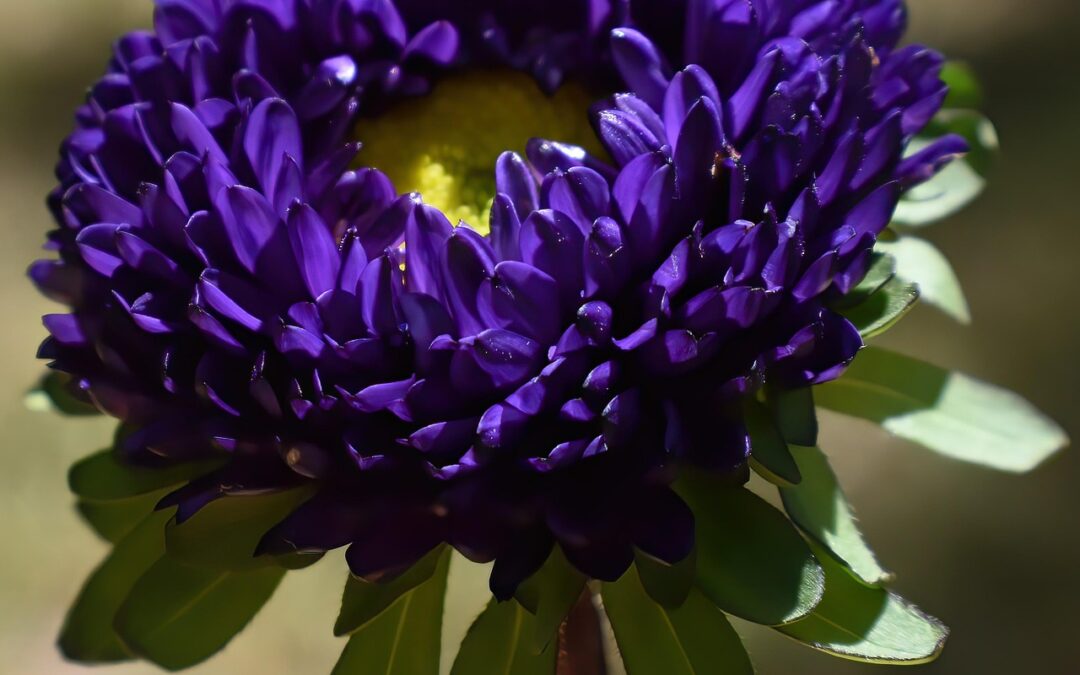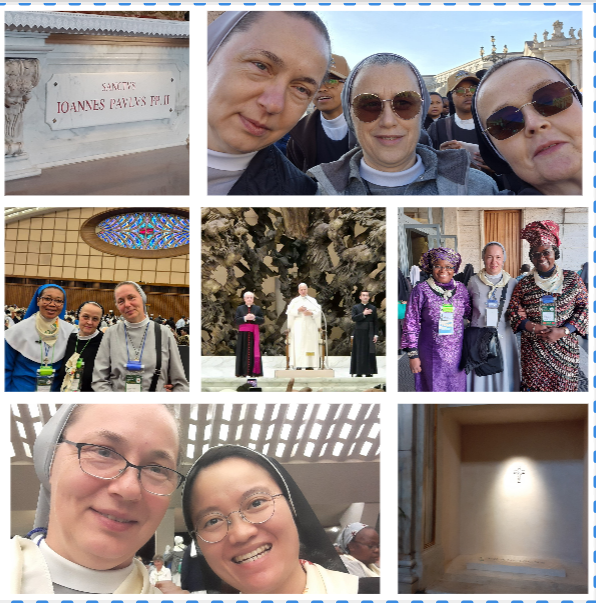
Oct 30, 2025 | DAILY BREAD
Friday of week 30 in Ordinary Time
Readings: Romans 9:1-5
Saint Paul’s anguish in today’s reading reveals the heart of a true missionary who loves deeply, suffers silently, and never stops hoping for the conversion of others. His pain is not rooted in anger or disappointment, but in love: the sorrow of seeing his own people fail to recognize the salvation offered through Christ. Every missionary, every believer who carries the Gospel, knows this cross. It’s the ache of witnessing hearts closed to God’s grace. Yet, even in that sorrow, Paul does not lose faith. He continues to intercede, to love, and to trust that God’s plan of mercy is greater than human resistance. This passage invites us to share in that same compassionate zeal: to pray not from judgment, but from tears; not from frustration, but from faith that no soul is beyond God’s reach. True evangelization is born from a heart willing to suffer for the salvation of others, just as Christ did. Let’s reflect: Do I carry in my heart the same compassionate love and patient hope for those who seem far from God, trusting that His mercy can reach them in His time?
Don Giorgio

Oct 29, 2025 | DAILY BREAD
Thursday of week 30 in Ordinary Time
Reading: Romans 8:31b-39
Saint Paul’s magnificent assurance in Romans 8 resounds with unshakable confidence: “Nothing can separate us from the love of Christ.” No suffering, loss, trial, or fear, not even death itself—can undo the bond that grace has established between God and us in Jesus Christ. This truth is not meant to shield us from pain but to sustain us within it. The love of Christ is not fragile; it is steadfast, victorious, and constant, reaching into every corner of our lives. In a world where love often feels uncertain or conditional, Paul’s proclamation anchors us in divine security: God’s love does not depend on our success or worthiness, it flows endlessly from His heart. When we live from this conviction, anxiety gives way to peace, and courage rises within us to face every challenge with trust. Nothing, not our failures, not our fears, has the power to separate us from the One who has already given us everything in His Son. Let’s reflect: Do I truly live with the confidence that nothing, not even my weaknesses or struggles, can separate me from the unbreakable love of Christ?
Don Giorgio

Oct 29, 2025 | DAILY BREAD
Wednesday of week 30 in Ordinary Time
Reading: Romans 8:26-30
Saint Paul’s words in Romans 8 are among the most consoling in all of Scripture: “We know that all things work for good for those who love God, who are called according to his purpose.” This is not a promise that everything will be easy or pleasant, but that in every circumstance, joyful or painful, God’s loving hand is at work, weaving grace into the fabric of our lives. The Holy Spirit, Paul says, even intercedes for us when we do not know how to pray, transforming our weakness into communion with God’s will. This truth invites us to look at our lives with eyes of faith: nothing is wasted in God’s plan. Every cross, delay, or disappointment can become a path toward holiness when embraced with trust. To love God is to allow Him to transform every moment into an instrument of good. Let’s reflect: Do I truly trust that God can bring good even out of my struggles and uncertainties, allowing His purpose to shape my life more than my own plans?
Don Giorgio

Oct 27, 2025 | DAILY BREAD
Saints Simon and Jude, Apostles
Reading: Ephesians 2:19-22
Saint Paul reminds us that the Church is not simply an institution or a gathering of believers, but a living temple built by God Himself. The Apostles and prophets form its foundation, Christ Jesus is its cornerstone, and we, each one of us, are the living stones being fitted together in the Spirit. This image calls us to unity, holiness, and purpose. Our faith is not private or isolated; it is meant to be joined with others in a communion that reflects the presence of God in the world. The Feast of Saints Simon and Jude reminds us of this continuity of faith, how, from the foundation laid by the apostles, each generation is invited to build upon the same cornerstone, Christ the Lord. When we allow His Spirit to shape us, our lives become part of God’s dwelling, and the Church itself becomes a sign of His love and holiness among all nations. Let’s reflect: Do I allow myself to be built upon Christ, the cornerstone, working in harmony with others as part of the living temple where God dwells in the Spirit?
Don Giorgio

Oct 27, 2025 | NEWS
When Pope Francis announced the Jubilee Year 2025, I felt a desire to make a pilgrimage to the Eternal City, to the tombs of the Apostles. I planned to go to Rome with my family, but in the end, it was an invitation from Mother General that motivated me to participate in the Jubilee of Consecrated Life. I didn’t make any arrangements with any of the sisters, I found a convenient connection, and my superior bought my tickets for the trip back in February. A lot had changed by the time of departure. I changed my place of work and took on new responsibilities. But in the end, everything worked out. As it turned out, God made sure that I would not be traveling alone. Sisters from the Generalate accompanied us on the trip. They were like the angel Raphael to Tobias for me, especially Sister Róża. Staying at the Generalate was an experience of the internationality of the Congregation and of how differences can be enriching.
I participated in the program prepared by the Dicastery for Consecrated Life and Secular Institutes together with Sister Klara Trzęsowska. On the very first day, I was deeply moved by the prayer vigil in St. Peter’s Basilica and the reflections on hope, especially the words: Hope is a little girl walking through the world… We often expect great things, but pay little attention to what is small. Today, hope seems to barely smolder in the world, in families, and sometimes even in the hearts of those consecrated to God. But it cannot fail, because God’s love has been poured into our hearts through the Holy Spirit who has been given to us (Rom 5:5). For me, this hope was the prayer of consecrated persons from all over the world gathered together. The meetings with Leo XIV were extremely encouraging. During the Wednesday audience in St. Peter’s Square, I was touched by his words: Christian joy does not exclude suffering. For me, these words had a very personal meaning in the context of my experiences over the last few years. Indeed, I feel in my heart love, joy, peace… (Gal 5:22) and I try even more to share it.
I am grateful to Sister Klara for the fact that, despite my oversight, I was able to participate in conferences and workshops for consecrated persons in the Paul VI Hall. I listened to the testimonies of sisters working in different parts of the world, in different cultures, often in difficult conditions. What united us was the joy of the Gospel and a passion for life for Jesus, the Church, and people. During these meetings, the Pope also came to us. The long wait for the Holy Father was accompanied by singing and general excitement, which intensified when Leo XIV finally appeared. This time, he reminded us that we, the consecrated, are a sign of hope for the world and for our communities.
The last day of the Jubilee of Consecrated Life was combined with the Jubilee of Marian Spirituality, which was attended by many lay people who came to pray with the Pope for peace in the world in the presence of a statue of the Mother of God brought from Fatima at the express request of the Holy Father. This prayerful evening rosary service took place in silence and concentration. The thought arose in my heart that Our Lady had come here for me… And the words from the Pope’s Sunday homily to be a womb
for the Word of God, like Mary, and to be a person of peace with gentle firmness, like her, continue to work
in me to this day.
In addition to my experiences participating in organized services, I joyfully passed through the Holy Door, asking for the gift of the jubilee indulgence and visiting the other great Roman basilicas. A powerful experience, where I was touched by the atmosphere of the place and God’s light, was praying at the tomb of St. John Paul II and Pope Francis. The latter in particular impressed me with his simplicity and humility, often misunderstood by Europeans.
Our last outing with Sister Klara to the Basilica of St. Paul Outside the Walls and the trip to the mother of churches, the Basilica of St. John Lateran, led us, as a result of a mistake, to another interesting place—
the Basilica of St. Clement, where St. Ignatius of Antioch and St. Clement, the fourth pope in the history of the Church, are buried.
The pilgrimage passed quickly, and I happily returned to Poland with Sister Róża. What remains are not only memories. What remains is a message, experiences, an invitation to share
with love and faith, giving hope to those with whom I spend my daily life. I am grateful to Mother General for the invitation and to all those who helped me fulfill a desire that I am convinced was inspired in me by God Himself.
s. M. Michaela Musiał





